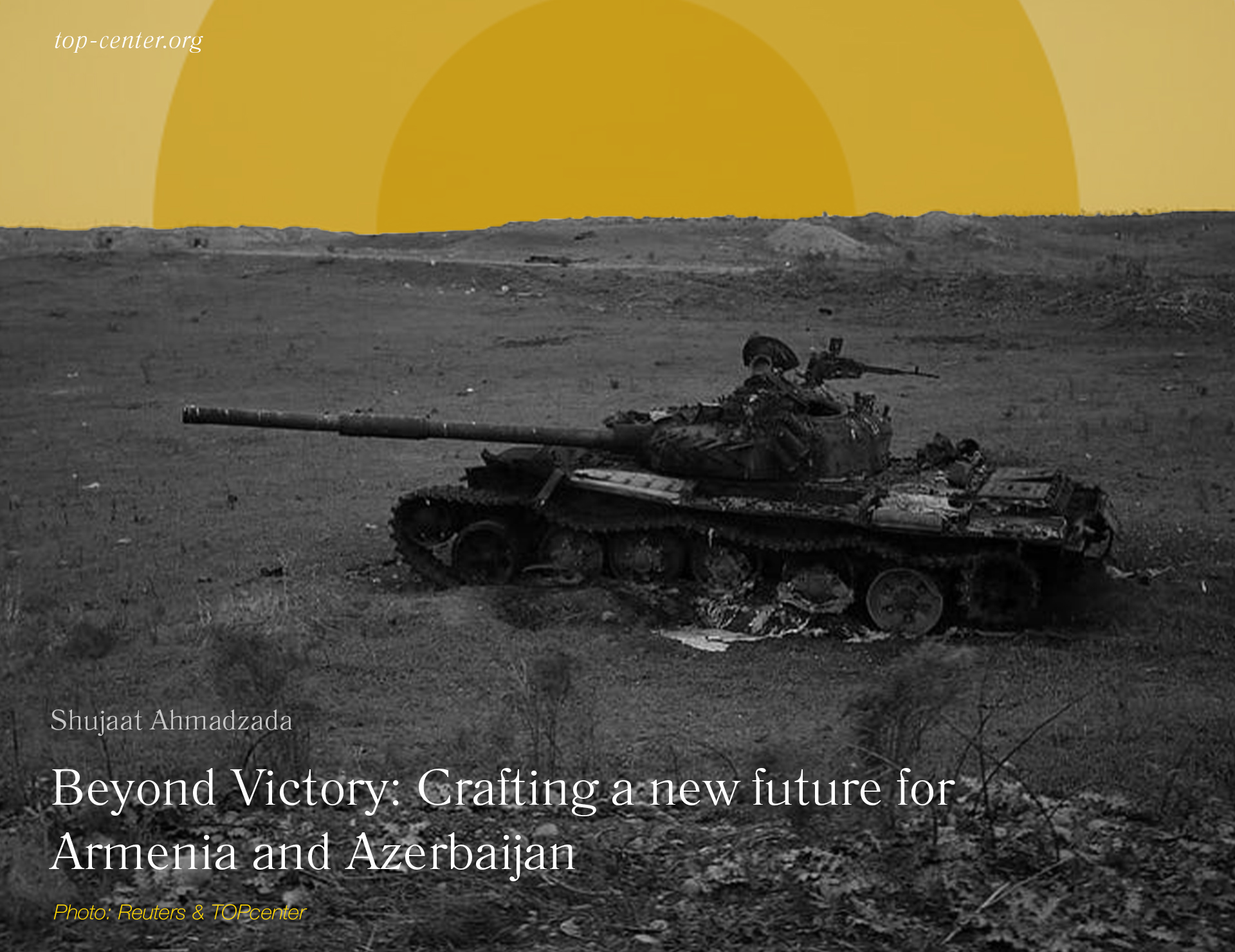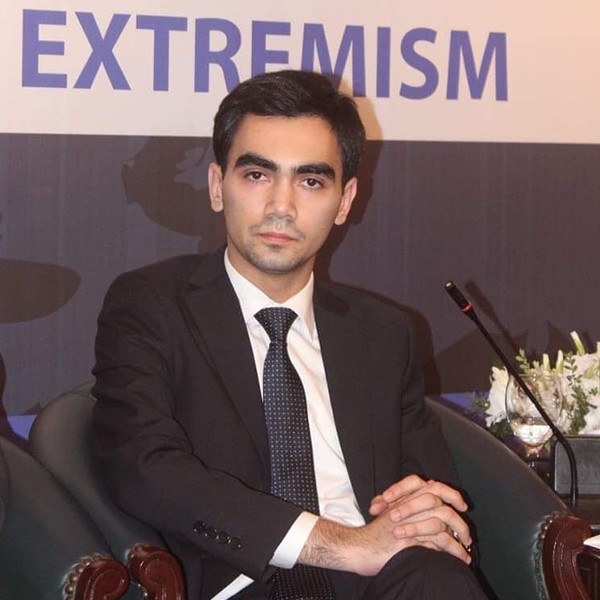Beyond Victory: Crafting a new future for Armenia and Azerbaijan

“Build your opponent a golden bridge to retreat across” – this timeless counsel of the Chinese military strategist Sun Tzu remains profoundly relevant through the ages. How nations treat their rivals following the heat of battle mirrors their strategic acumen and wisdom. History offers numerous examples of states, bereft of this strategic vision, transforming military triumphs into naught.
For over three decades, Armenia and Azerbaijan have been suffering from a protracted ethno-territorial conflict over Karabakh. Following its triumph in the First Karabakh War of 1994, Armenia effectively established control over Nagorno-Karabakh and seven adjacent regions of Azerbaijan. Rather than leveraging the occupied territories to secure a favorable negotiated settlement, victorious Armenia opted for relying on “time” and building a “pyramid of national myths” that made compromises impossible.
In the autumn of 2020, the outcomes of the first war were reversed in favor of Azerbaijan. Nevertheless, the night spanning from November 9 to 10 marked not only the acknowledgment of Azerbaijan's military victory but also the start of an uncharted period fraught with a lot of uncertainties and questions. For the first time in its history, having emerged triumphant from all-out warfare, Azerbaijan confronted an unprecedented duty – that of constructing a post-war order.
More than 2.5 years have passed since the end of the Second Karabakh War. Yet there are more questions than answers about what this post-war order, if such a concept exists at all, is or will be about. We know what Baku wants; construct a system that would make the actions of Armenia predictable. It is also clear what Yerevan fears the most; full dominance over Armenia at a time when the power imbalance is the deepest.
Today, Azerbaijan wields substantial political and military power. This power can be leveraged across multiple dimensions. For some, resorting to coercion over the art of diplomacy may sound like a straightforward option. Yet, the repercussions could be weighty and far-reaching; even if some military goals can be achieved on the battleground, coercion would surely backfire, pushing Armenia to distance itself even more from the prospects of forging institutional cooperation with Azerbaijan.
“One knows where a war begins but one never knows where it ends”, said Prince von Bulow. Bringing wars to a true conclusion, which may have ceased on the battlefield but linger in other ways, demands strategic vision and mastery in statecraft. Post-war order starts when former military rivals agree on institutionalizing their cooperation. The turning point happens when the victorious state undertakes not to use the power it gained on the battlefield indiscriminately. It is this commitment that motivates others to cooperate with - that is, to become part of the post-war order (G. John Ikenberry, 2001).
The institutional cooperation with Armenia – this is what Azerbaijan has a strategic need for. This strategic need originates from the underlying proposition that failure to have such cooperation would inevitably result in external parties persistently exploiting Armenia's conflict with Azerbaijan for their advantage. Disregarding the extent of neo-imperial appetite for the South Caucasus, particularly that of Moscow and Tehran, would be at best naïve. For these two ex-imperial metropoles, the independence and sovereignty of the former peripheries (Armenia and Azerbaijan) is not only "accidental" and a "historical mistake", but also undeserved "luxury."
Securing dominance over the South Caucasus stands as a critical goal for Russia, an aspiration it anticipates other nations to acknowledge. The invasion of Ukraine is primarily about achieving this recognition on a global scale. It is worth going back to December 2021, when the Russian MFA sent a draft agreement to NATO, urging three neighboring regions – Eastern Europe, South Caucasus, and Central Europe – to be recognized as Russia's de facto “backyard”. Those who resist the subjugation face repercussions, either through direct military interventions (Georgia and Ukraine) or through various forms of hybrid warfare (Armenia, Azerbaijan, and Moldova).
For a long time, Tehran has tacitly recognized Russia's situational preponderance in the South Caucasus. But after the invasion of Ukraine, the regional power dynamics have become more intricate. The military and strategic setbacks of Moscow in its war efforts in Ukraine have largely constrained Kremlin’s political leverage over the neighboring countries, resulting in an emerging power vacuum. Fearing that this void might be filled by actors that challenge Tehran's regional interests, with Turkey at the forefront, Iran has lately become aggressive in its foreign policy toward the South Caucasus over the past couple of years. With the global geopolitical landscape becoming more divisive, there is an increasing probability that Tehran will resort to coercive measures against its Caucasian neighbors. Over the past 15 years, Iran has gained significant experience in this realm through proxy conflicts it conducted in Yemen, Syria, Lebanon, and Iraq.
It is worth mentioning a hundred times more how the ongoing conflict between Armenia and Azerbaijan fuels the Great Game over the South Caucasus, turning the region gradually into a proxy war battlefield. At this juncture, all eyes are on Azerbaijan for a reason. Some may not be aware, but Azerbaijan has reached such a strategic juncture that how it uses its power can determine the near and medium future of the region. Here, sophisticated and strategic usage of might is imperative so Armenia and Azerbaijan can enter the post-war era. As paradoxical as it may sound, the post-war order is shaped by the ability of the victorious state to show restraint and offer commitments.
Two commitments have to come from Baku. Firstly, it is crucial for Azerbaijan's strategic interests that Armenia remains an independent and economically, politically functional state. This is important because if Armenia deteriorates into a politically and economically dysfunctional state, its sovereignty will gradually erode. There exist two potential scenarios for a "non-sovereign" Armenia. Should Russia achieve success militarily in Ukraine, it is plausible that Armenia could adopt a role resembling that of a "secondary Belarus." Conversely, there also exists a possibility of Armenia transforming into a locus of proxy hostilities, subject to influence from both Russia and Iran.
Azerbaijan's strategic needs necessitate the prevention of both scenarios, and while it might appear utopian, achieving this end should involve bolstering Armenia's sovereignty. A pivotal stride toward this goal would involve a re-assessment of the standoff over the enclaves, which possess the potential to significantly disrupt vital transportation links connecting northern and southern Armenia, thus making the country economically dysfunctional. One also finds it challenging to contend that an extra-territorial “Zangezur corridor” would increase Armenia's geo-economic agency, even though the discourse around the extra-territorial corridor has diminished since the beginning of this year.
Azerbaijan must extend another crucial guarantee: ensuring the continued existence of the Armenian population in Karabakh. Azerbaijan does possess the capacity to guarantee the cultural, religious, and political rights of the Armenians residing in Karabakh, simultaneously ensuring their physical safety. Despite the separation spanning over three decades, it is plausible to consider the Karabakh Armenians as an integral element of Azerbaijan's polyethnic cultural landscape, or at a minimum, this viewpoint warrants consideration. Allowing the divisions to intensify would yield detrimental rather than beneficial outcomes for Azerbaijan.
To prevent the deepening of this division, the paramount concern lies in addressing the humanitarian problems that exist in Karabakh. Ensuring the unhindered provision of vital essentials such as food and medicine to the Armenian population, coupled with the resolution of energy supplies, is of utmost importance. This may require the engagement of impartial intermediaries, and the Red Cross stands out as particularly well-suited for this role.
Furthermore, it is imperative, now more than ever, to formulate and put into practice a comprehensive plan outlining the means to ensure the rights and security of Karabakh Armenians. This responsibility is reinforced by international agreements to which Azerbaijan is a signatory. Per norms and principles of international law, Baku bears the responsibility of safeguarding the rights of the Armenian minority residing within its territory, rather than relying on third-party involvement.
These commitments serve as the bedrock for conceivable institutional cooperation between Armenia and Azerbaijan, providing a route to ultimately break free from the prolonged conflict that has afflicted both nations for more than three decades. Although this perspective might seem overly optimistic given the current circumstances, the optimal guarantor for Armenia's security should ideally be Azerbaijan, and vice versa. This necessitates a strategic vision and wisdom to look beyond the ethnic divide.







